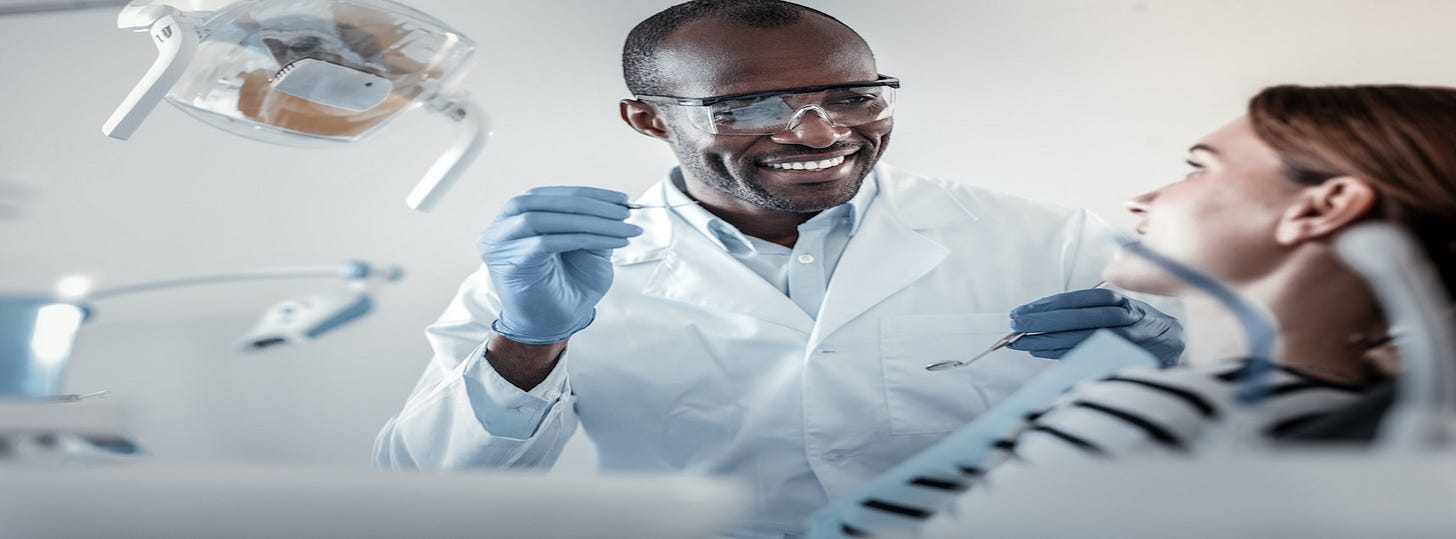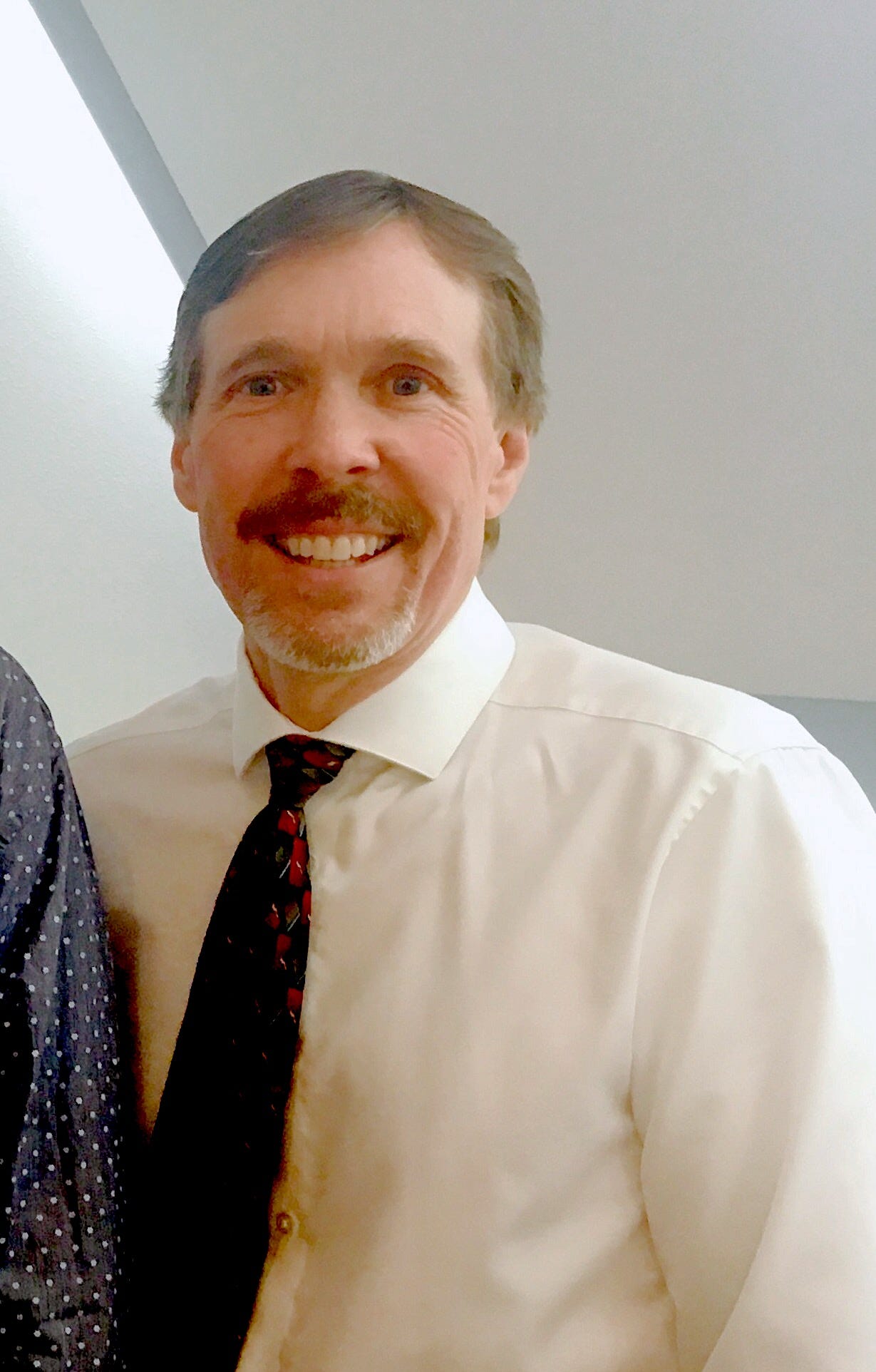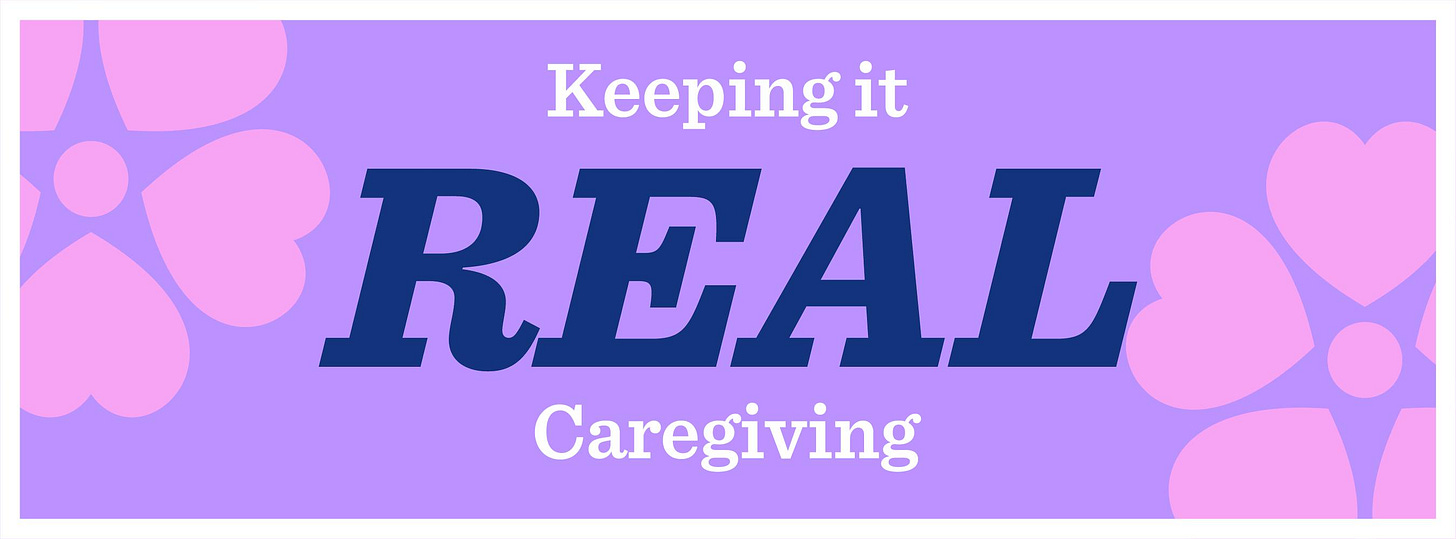Chew on this: we're getting older - so are our teeth!
Celebrate October and National Dental Hygiene

October. The month known for anticipating ghosts, goblins and trick-or-treating. It is the month when we turn our attention to breast cancer awareness. But did you know October is also National Dental Hygiene month?
To learn more about the connection between dental health and aging, I reached out to Norm Rosene, M.S., D.D.S. He is based in Chico, California.

Norm Rosene M.S., D.D.S.
For the past 36 years he has been practicing the work he loves!
“It is extremely rewarding being able to remove someone’s physical pain. It is fun and challenging to rebuild someone’s smile.”
Connection to eldercare
I first met Dr. Rosene in 2016 while working on a community volunteer effort involving local infrastructure. His attention to detail and respectful demeanor impressed me. Once learning of his professional credentials, I decided if my mother needed dental care, he would be our choice.
During an eventual visit, Dr. Rosene explained how often he tends to elders; those with dentures, severely damaged teeth and/or advanced gum disease. He talked about the connection between poor dental health and poor nutrition; realities we faced in our household.
Keeping it REAL Caregiving reached out to Dr. Rosene to dive a bit deeper into National Dental Hygiene month and what that can mean for elders.
We invite you to SUBCRIBE to the KIRC newsletter for more news, info and support topics for family caregivers

Dental health & nutrition
When we talk about dental health the focus is often on pediatric care. However, Dr. Rosene says for our elders, poor dental hygiene can be the pathway to other, more serious conditions. He says talking about dental problems and solutions is something we, as a society, should do more often, especially for our elders.
“Gum disease has been correlated with an increase in heart disease as certain bacteria in the mouth have been found in atherosclerotic plaques in arteries. Oral infections can spread to other areas of the body.
Chronic oral infections like periodontitis destroy bone, and sap the body of energy that could be better used elsewhere.”
Dr. Rosene adds, that painful or missing teeth can lead to difficulty or incomplete chewing, which can then lead to the body not getting enough nutrients which can then lead to overall health decline.
Paying for care
In some cases, accessing and affording care can be another barrier for elders seeking proper dental care. Remember, Medicare does not generally cover dental treatment.
US lawmakers, the dental community and many advocacy groups are at odds over how to provide sufficient care to our aging community. The American Dental Association recently submitted a statement to Congress regarding expanding such coverage.
Dr. Rosene advises us to work with our dental providers to hammer out a plan.
“As a dentist, I sequence treatment plans to first eliminate pain and infection, and then work towards establishing health and restoring teeth. There are many different ways to accomplish those basic goals, and it is important for the dentist and patient to work together to achieve them.”
We are living longer - so are our teeth
We’ve talked previously here at KIRC about longevity trends. The reality is, we are living longer. That means our teeth need to keep pace as well. Dr. Rosene believes we need to talk more about the link between how poor oral health can impact the entire body.
“For instance, we now understand that dental decay and gum disease are both caused by bacteria. Consistent and good oral hygiene, that removes the disease-causing bacteria, is the key to oral health. Brushing and flossing, or other appropriate techniques, really do work in preventing most teeth and gum problems," explains Dr. Rosene.
"Eliminating smoking and controlling diabetes would also help decrease gum disease which is tied to both."
Caregivers on alert
Another element which caregivers should pay close attention to? Is your elder able to practice good oral hygiene?
This one can be a bit tricky, but I encourage all caregivers to address the “personal privacy” issue in the bathroom and WATCH how - or even IF - your elder is brushing their teeth or cleaning their dentures.

Courtesy: Screenshot/National Institute of Dental and Craniofacial Research
It can be uncomfortable and feel invasive, but Dr. Rosene says you might discover your loved one needs help. He points out:
Often our vision is not as good, and visualizing plaque on teeth is challenging.
Our manual dexterity is compromised so brushing and flossing can be difficult or even impossible.
Dr. Rosene says he has worked with many senior patients facing such challenges.
“Electric toothbrushes are useful because the vibrating head does the cleaning, and the body of the electric toothbrush is large enough to grasp even with arthritis.”
What can we, as caregivers do to help our elders? Dr. Rosene says there are some signs we should be on the look-out for which could indicate serious dental issues and ways to address them.
Caregivers should always investigate any complaint of oral pain, and especially any swelling that is visible in the mouth or on the face. These are signs of likely dental or gum infection.
Second, use a flashlight to illuminate the mouth; look for broken teeth, stain, calculus or plaque - basically anything that doesn't look correct or is covering or attached to the teeth. Plaque is the bacterial matrix that causes disease. If you see it on the teeth, then it is also affecting the gums, often leading to redness, swelling, and bleeding gums. All are signs of gum disease.
Bad breath (halitosis) is often a sign of periodontal disease. Caregivers are generally aware of halitosis, and will want to help clean and disinfect any dental appliances, as well as help with oral hygiene if possible.
Bottom line? Dr. Rosene says we should all strive to take care of little dental problems before they become big problems. And for caregivers, that means lending an additional hand to our elders.
I asked Dr. Rosene, if he had a magic wand to solve all the issues, what would he tackle?
"I would help people to value their teeth and oral health when they are young so that they would be healthy as they grow older.
Seniors who begin the last third of their lives with intact and healthy detentions do better in term of general health than those with life-long dental problems. I would encourage people to take control of their oral health, and brush and floss correctly everyday."
Thank you Dr. Rosene for sharing this valuable information!
Do you have any suggestions or steps you have taken in your households which have helped your elder? KIRC wants to hear from you - join the discussion and share!

Courtesy: Norm Rosene M.S., D.D.S./Nepal, 2015
NOTE: Dr. Rosene divides his time between helping patients and giving back to his community. Dr. Rosene volunteers with the Butte County Search and Rescue team focused on animal rescue; specifically in the cases of wildfire disasters. That work sometimes takes him overseas. In 2015, he joined a team from the International Fund for Animal Welfare in Nepal after a devastating earthquake. KIRC appreciates your dedication to helping others.
Until next time~ Ciao!




